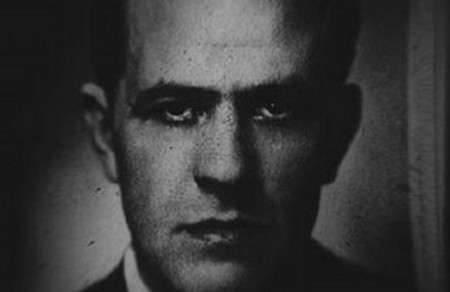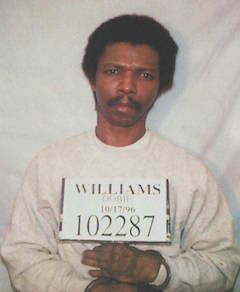Individuals with high status, who are charming figures, and who exhibit polite manners can fool anyone into thinking they are nice, educated, and innocent beings. One man used exactly those characteristics to hide his true self and avoid being suspected of being a serial killer. Władysław Mazurkiewicz, unknown perhaps outside Poland, was one such killer.
Mazurkiewicz was born on January 31, 1911 in Krakow, Poland. As a young child up to his adulthood he always gave off the impression of having style and brains. As a young man, he dined at the classiest restaurants, dressed in the finest attire, and stayed at the top star hotels. How did he afford such a lifestyle? Actually, his murders funded his tasteful lifestyle. At a young age his mother had succumbed to a disease. In his young adult years, he loved to study law and politics, but soon dropped out of school, claiming that higher education took too much time away from his social life. Gaining a spot in the elite social class of Poland was very important to Władysław. He was so influenced by the kind of lives they lived that he began to take larger and larger risks to join their ranks. He gamble money, and lost; desperate to get money, he turned to the higher risks of robbery, and in order to cover up his crimes, he resorted to murdering his robbery victims. That’s how it all started.1

In 1940, Mazurkiewicz said that he robbed and killed his first victim, a Jew. He was never caught for the crime. He traded the belongings of the Jew for money, as he would thereafter often trade stolen gold and leather for money. Following that year, he traveled throughout Europe and made dirty deals with members of the communist authorities in Poland. People said that Mazurkiewicz was rich after 1941, when the Jewish ghetto was founded in Warsaw. As a result, by 1943 the status of Mazurkiewicz’s possessions had increased. It is well known that during the deportation of Krakow’s Jews to Auschwitz, a group of Cracovians made a fortune. Cracovians, seeing Mazurkiewicz bet at the tables and the way he got away with robberies, had no illusions that he was just a rookie in these crimes. Interestingly, the label of “collaborator” did not cling to Mazurkiewicz. At the end of the 1940s, Mazurkiewicz changed into a Polish Red Cross employee for several years, while he spent time in Europe. There he searched for Polish citizens who wanted to return to the country, helped them to complete the necessary formalities, and then organized the trip back to their homeland. And Mazurkiewicz, as people who knew him, had a sensitive soul, loved nature, beautiful objects, and knew how to appreciate the beauty of architecture.2

Against this background of Mazurkiewicz’s biography, his family life is likewise puzzling. Mazurkiewicz had a wife—beautiful Helena—with whom he had lived at Biskupi Square since 1945. Mazurkiewicz met a man named Jerzy de Laveaux, known as the King of the Black Market, on May 29, 1946, when he was moving to the monastery in Cracow Bielany, and they ended up being neighbors. They later had a business there in the city involving the black market. In the spring of 1946, a Soviet officer visited him and offered to buy postage stamps. In the autumn of 1955, an indispensable garage failed to hide the bodies of two wealthy sisters. Before it happened, at the turn of August and September, the elegant murderer had a meeting in Warsaw with Stanisław Łopuszynski, who in those days had turned up his murky business in betting crimes and murders.3
In his murders, he would only use cyanide or a pistol, and he had gotten away with every single one of them, until a strange incident in 1955 when he made his first mistake. While driving from Zapokane to Warsaw in September with his friend Stanisław Łopuszyński, Stan had his attention distracted for a minute, and Mazurkiewicz seized the opportunity and shot him in the head. Shockingly, the bullet had missed his brain and he was only knocked unconscious. Stan woke up with a sharp pain in his head, and Mazurkiewicz apologized to him saying that he had played only a joke on him by throwing a fire cracker at him. Later, Stan attended a hospital, complaining of very harsh pains in his head. The doctors couldn’t find an explanation until they conducted an x-ray and found a foreign object lodged in his skull. When they pulled out the small object, they discovered it was a bullet. Stan put the clues together and figured out that his friend had tried to kill him. He reported it and the the police issued a warrant for Mazurkiewicz’s arrest.4

A month later, police caught up with Mazurkiewicz in a hotel near Zapokane, Poland. When they searched his home, they found that the concrete floor in his garage was uneven and looked disturbed. Once they broke open the concrete floor, they discovered the bodies of the Laveaux sisters, two daughters of a wealthy Polish family. He had stated that they both had asked him to watch over their jewels and currency while they went out of town. When they returned and asked for their jewels and currency, he had already spent it all on luxury items and gambling. So he invited them to his house for tea, and shot them both in the back of the head, and then opened a hole in his garage to bury them and fill the graves with concrete. 5

Police took Mazurkiewicz in for questioning and were baffled by his confession. In his many killings, he explained how he murdered some, starting with Tadeusz B, a polish army soldier, who had traded illegal currency with Mazurkiewicz, had lunch with him one day, and fed him a sandwich laced with cyanide. But luckily for the officer the small amount only knocked him unconscious for a few hours, and then he got medical attention, although they couldn’t trace any evidence of the sandwich to Władysław. Another victim, Wiktor Z, was poisoned with cyanide, shot, and then dumped into the Wisła river, Poland’s largest and main river. Władysław B, Jerzy de Laveaux, and Józef T all met the same fate. When the time for trial came, Mazurkiewicz was only charged for six murders and two attempted murders, even though he had told police he committed thirty.6 His lawyer at the time, Zygmunt Hofmokl-Ostrowski, argued that his client was a “natural” killer. He used the defense of mental illness, and that he had these instincts in his genes and couldn’t be a normal being even if he tried. The defense attorney also said that the people who he executed were “dysfunctional” in society so it was as if Mazurkiewicz was doing society a favor, and therefore shouldn’t be prosecuted. But the court thought otherwise and Władysław was sentenced to death. On January 31, 1957, his 46th birthday, Mazurkiewicz was hanged at Kraków’s Montelupich prison.
- “The Joys of Private Enterprise,” TIME vol. 68 no. 9 (1956): 34. ↵
- Cezarego Łazarewicza, Elegant Murderer (Poland: W.A.B., 18 November), 224. ↵
- Cezarego Łazarewicza, Elegant Murderer (Poland: W.A.B., 18 Novemeber), 224. ↵
- Artur Drożdżak, “Władysław Mazurkiewicz,” Serial Killer, (November 2013). ↵
- Inside Poland, “Władysław Mazurkiewicz,” Poland’s Gentleman Killer, (July 2014). ↵
- Mazurkiewicz Władysław – Elegancki morderca [feat. Straszne historie na faktach | NIEDIEGETYCZNE. YouTube. April 14, 2016. Accessed August 29, 2017. https://youtu.be/E4CgevTIspQ. ↵



62 comments
Madeline Emke
This article was intriguing and shocking. First, the way Mazurkiewicz confessed so quickly to the murders seems odd and puzzling because the police only knew about the one attempted murder until Mazurkiewicz confessed to the others. Secondly, I think some of his potential murder victims were extremely lucky that he failed, especially his friend that he attempted to kill with the pistol. Overall, I found it terrifying how suave and sophisticated Mazurkiewicz acted to hide his murderous tendencies.
Victoria Hoggard
People always think because someone is polite, charming and smart that they are safe to be around, this article proved that is sometimes not the case. It’s obvious his victims felt safe around him and didn’t think he was a threat. I think Mazurkiewicz was too power hungry and was very greedy, which led him to do the worst kind of crimes.
Alison Morales-Aguilar
I think the part of this story is that most people do think those that are polite and charming are “safe” to be alone with. Bundy and Mazurkiewicz both show that this is completely false, some people are just horrible. As someone already mentioned, Mazurkiewicz was very smart and charming, why wouldn’t he have finished school in order to seem more “socially acceptable”. Mazurkiewicz making a mistake by shooting his friend shocked me because I think that’s the number one taboo for serial killers, don’t kill people who are near you.
Aracely Beltran
Great article, the author was able to get me interested in the first paragraph. We all know rich people usually are able to get away with most stuff. It is so sad that he wanted money fast and turned to kill people for it. Education and building towards a career does take a long time, but it is worth it and it feels more rewarding in the end.
Nelly Perez
Poland’s notorious killer really had the charm of a normal man only to be disguised as a serial killer. That kind of charm still exists whether we know it or not. He got away with killing a lot of people who came from wealthy families and sold their products for money. His friend reported him after being closely shot dead, even though he went unconscious.
Alin Bocardo Felix
Władysław Mazurkiewicz is yet another example that class is not any means of a ‘better human’. He murdered people to get to where he wanted to be, dropped out of school simply because it interfered with his social life and robbed people from their only possessions. This is a great article, it adequately includes the era and the importance of it and the order of the information is formatted well enough for the reader to follow through.
Vanessa Quetzeri
Mazurkiewicz was a man with much potential that let greed blacken his heart. He could have been a great contribution to society, but he had a gambling addiction. He lived a life he believed would only improve if he came into a fortune, money certainly does not buy happiness, because he ended up being sentenced to death at Krakow’s Montelupich prison.
Cristianna Tovar
The story of Władysław Mazurkiewicz just goes to show how much an individual will go to “fit in” with the crowd. From dropping out of school because it interfered with his social life too much to gambling to increase his rank within society, Markiewicz seemed to crave the attention of others. I thought it was crazy that Mazurkiewicz went as far as to shoot his friend, Stan, in an effort to kill him. Although his defense attorney said that he was doing society a favor by killing all of the “dysfunctional” people, Mazurkiewicz manipulated his victims and tricked them into hanging out with him. I can’t believe that he was only charged with six murders and two attempted murders since he had told police that he had committed thirty of them.
Saira Locke
It amazes me how the smartest people can take on the most horrible personalities. Mazurkiewicz could have done such great things for society if only he wasn’t filled with dark thoughts and greed. It would’ve been more logical for Mazurkiewicz to not kill his victims because that leads to greater punishment. If he used his smarts and if he had the dark thoughts of greed, he should’ve used his marts to get money in better more effective ways.
Priscilla Poorbaugh
Mazurkiewicz seemed like a man who had a lot of potential. I feel like he let the greed get to him, well also he must have been a sociopath since he felt no remorse, but the motivation was clearly wealth. It is crazy to think that people that we would never expect could be cold blooded killers.